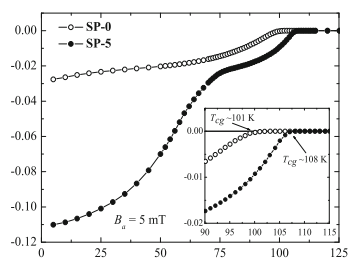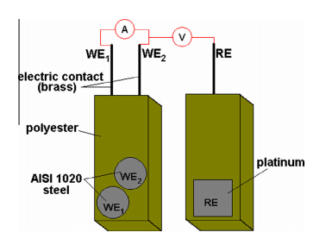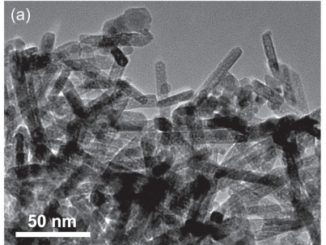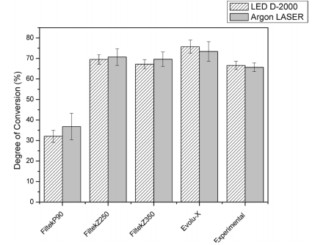
Spark Plasma Sintering of Bi1.65Pb0.35Sr2Ca2Cu3O10+delta Superconducting Samples: Evaluation of Microstructure and Mechanical Properties
Abstract: Powders of single-phase Bi1.65Pb0.35 Sr2Ca2Cu3O10+delta (Bi-2223) were consolidated by the spark plasma sintering (SPS) method at 750 C-a similar to. The SPS samples exhibited very high density, but are oxygen deficient, as inferred from magnetization, M(T), data. Therefore, the samples were then subjected to a post-annealing heat treatment in air, at 750 C-a similar to for 5 min. From the combined data of X-ray diffraction, microstructures observed by SEM, and Vickers microhardness measurements, we have found that SPS post-annealed samples showed the presence of an extra phase. According to the EDS analysis and X-ray diffraction results, the extra was identified as an infinite layer compound with general formula Ca1-x Sr (x) CuO2. Irrespective of the presence of this additional phase, the superconducting properties of post-annealed SPS samples are optimized when they are heat treated in air, at 750 C-a similar to for just 5 min. We have also observed a decrease in the Vickers as well as different indentation features in post-annelaed samples when compared with SPS ones. The occurrence of a decohesion of grains has been also observed, a feature similar to that found previously in the same material. On the other hand, a pile up formation occurred throughout the indentation in the sample, in which the annealing was carried out. 3-D profilometer characterizations confirmed these results, which are close related to the occurrence of the extra phase Ca1-x Sr (x) CuO2.
Author(s): Garcia-Fornaris, I; Calzada, I; Govea-Alcaide, E; Machado, IF; Jardim, RF
JOURNAL OF SUPERCONDUCTIVITY AND NOVEL MAGNETISM
Volume: 28 Pages: 3487-3492 Published: DEC 2015
DOI: 10.1007/s10948-015-3215-2




